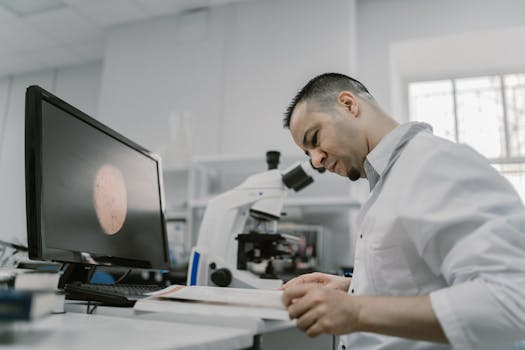Biohacking Education: Merging Tech and Biology in Labs
When you think of education, what comes to mind? Probably, it’s the traditional classroom setting with teachers delivering lectures and students taking notes. However, the field of education is evolving rapidly, and one of the most exciting developments is the emergence of biohacking education – the merging of technology and biology in labs. In this article, we’ll delve into the world of biohacking education and explore how this new approach can revolutionize the way we teach and learn about biology.
The Rise of Biohacking Education
Biohacking education is a relatively new concept that has gained attention in recent years. It refers to the use of technology, such as genetic engineering, synthetic biology, and virtual or augmented reality, to explore and understand biological systems. The goal of biohacking education is to provide a more hands-on and interactive approach to learning about biology. Students are no longer limited to textbooks and lectures; instead, they can actively participate in experiments and apply their knowledge in real-life scenarios.
The Benefits of Merging Tech and Biology in Labs
Enhanced Learning Experience
One of the primary benefits of biohacking education is that it enhances the learning experience for students. By using cutting-edge technology, students can engage in hands-on activities that provide a deeper understanding of complex biological concepts. They can visualize and manipulate genetic material and observe how it impacts living organisms. This not only makes learning more exciting but also helps students retain information better.
Preparation for Future Careers
The job market is continually evolving, and there is a growing demand for professionals with a background in both technology and biology. Biohacking education prepares students for these future careers by equipping them with the necessary skills and knowledge. By merging the two fields, students gain a multidisciplinary perspective, making them more versatile and valuable in the job market.
Exploration of Ethical Implications
With the emergence of new technologies, there also comes a need to discuss their ethical implications. Biohacking education provides a platform for students to engage in these discussions and explore the ethical considerations of using technology in biology. This aspect not only cultivates critical thinking skills but also encourages responsible and ethical practices in the field of biology.
Challenges and Limitations
While biohacking education has many benefits, it also faces some challenges and limitations. One of the main concerns is the cost of implementing this approach. The technology used in biohacking education can be expensive, and not all educational institutions have the resources to incorporate it into their curriculum. This can create a disparity in access to this type of education.
Another challenge is the ethical concerns surrounding genetic engineering and synthetic biology. While these technologies have immense potential, they also bring up ethical questions that need to be addressed carefully. Educational institutions must ensure that students understand these implications and approach them with caution.
The Future of Biohacking Education
The potential of biohacking education is vast, and it has already started to revolutionize the field of biology. In the future, we can expect to see even more innovative ways of merging technology and biology in labs. Virtual and augmented reality technologies will continue to develop, providing students with a more immersive and realistic experience. We may also see the use of artificial intelligence to analyze and interpret complex biological data, aiding in research and discovery.
Conclusion
Biohacking education is a game-changer in the field of education, bridging the gap between technology and biology. With its hands-on approach, students can develop a deeper understanding of biological concepts, prepare for future careers, and explore ethical considerations. While there are challenges and limitations, the potential for biohacking education is immense, and it will undoubtedly shape the future of biology education. As technology continues to advance, we can expect to see even more exciting developments in this field.







